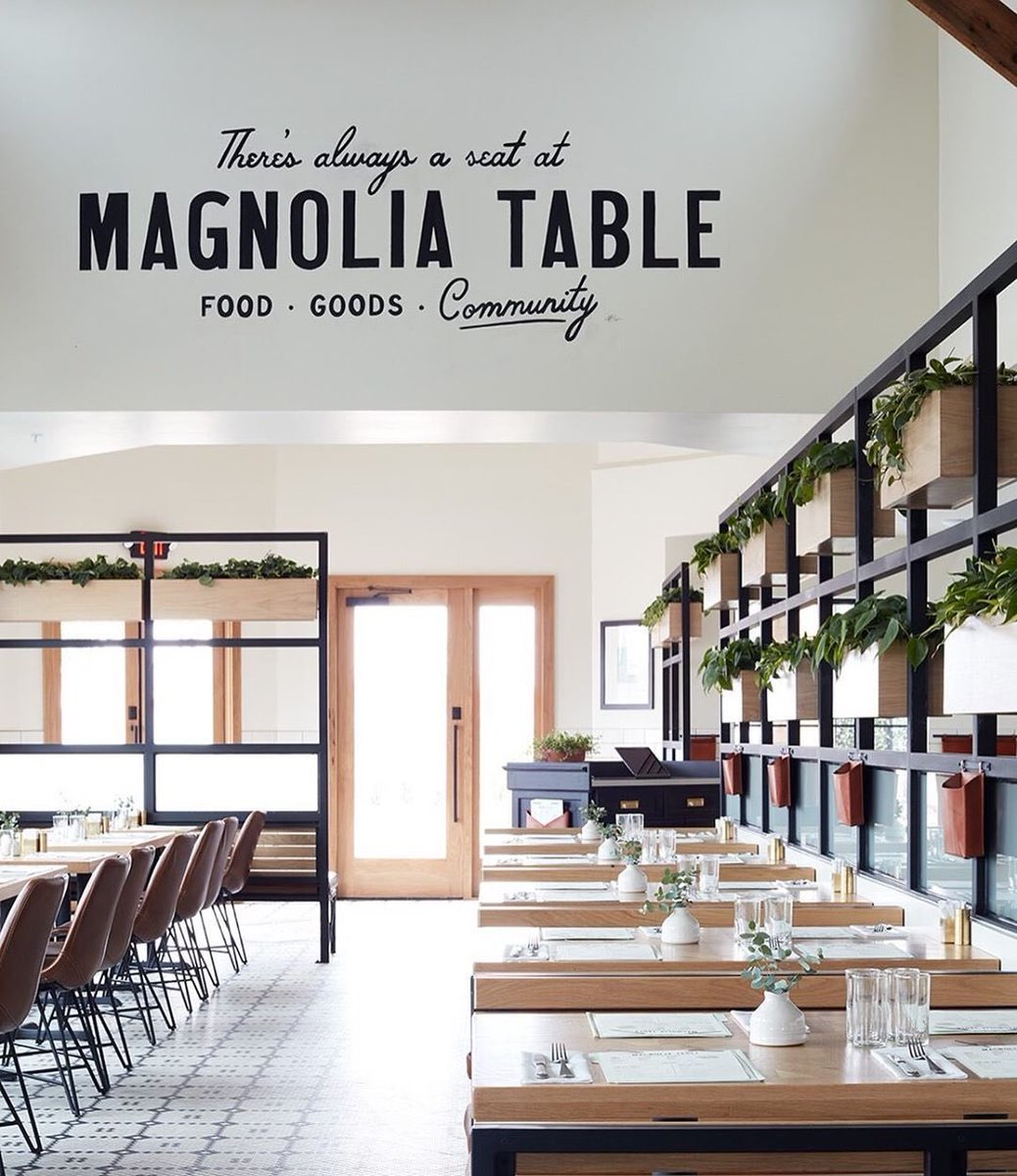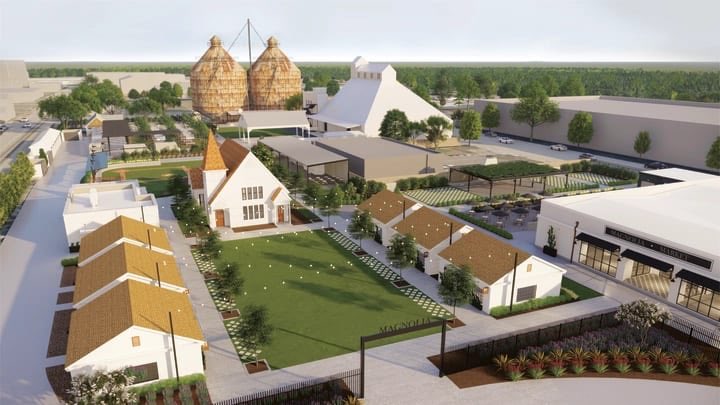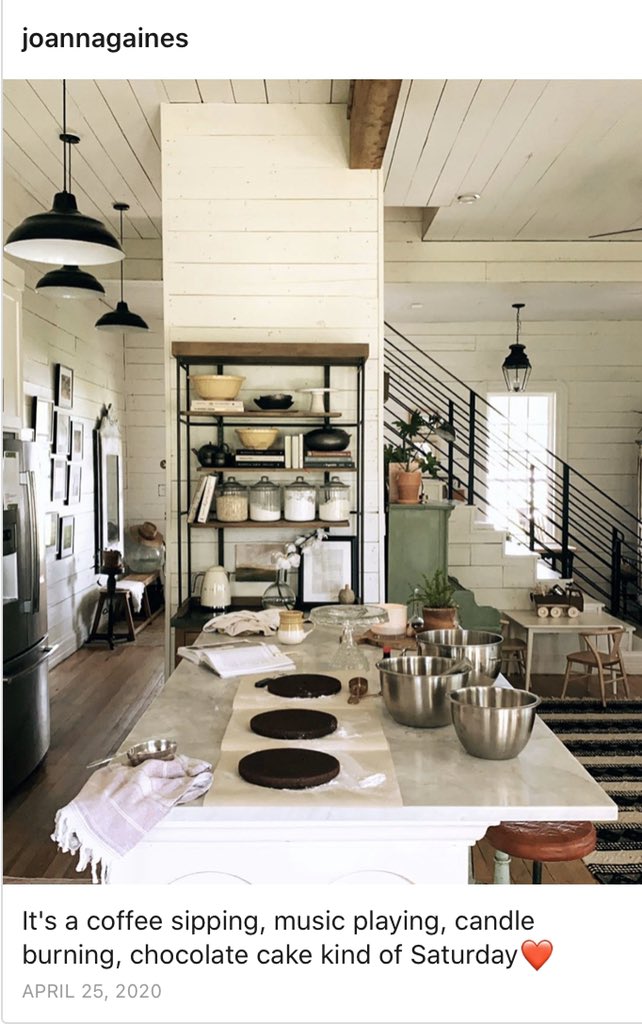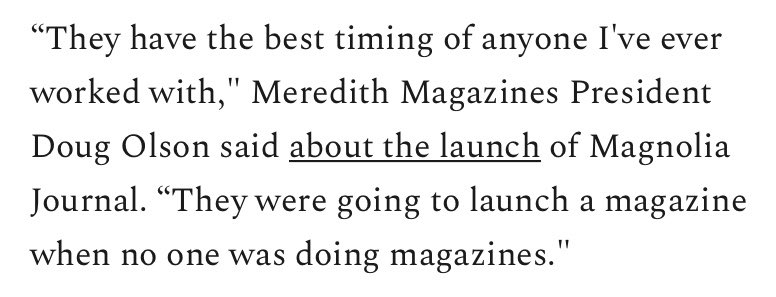While we’ve focused on VC-backed coastal brands, a husband and wife duo turned a small construction company in Waco, TX into a suburban sprawling empire in 8 years flat.
You know them: Fixer Upper’s @joannagaines & @chipgaines
Summarizing @ali_montag’s @magnolia & Monopoly https://abs.twimg.com/emoji/v2/... draggable="false" alt="👇🏻" title="Rückhand Zeigefinger nach unten (heller Hautton)" aria-label="Emoji: Rückhand Zeigefinger nach unten (heller Hautton)">
https://abs.twimg.com/emoji/v2/... draggable="false" alt="👇🏻" title="Rückhand Zeigefinger nach unten (heller Hautton)" aria-label="Emoji: Rückhand Zeigefinger nach unten (heller Hautton)">
You know them: Fixer Upper’s @joannagaines & @chipgaines
Summarizing @ali_montag’s @magnolia & Monopoly
Magnolia is a different kind of monopoly than we’re used to talking about on twitter.
To steal a phrase from @web, it’s one of the most expansive linear commerce companies you’ve never heard of.
What started as a TV show has turned into owning an audience & selling them:
To steal a phrase from @web, it’s one of the most expansive linear commerce companies you’ve never heard of.
What started as a TV show has turned into owning an audience & selling them:
There’s also Magnolia HQ in Waco, TX, featuring a coffee shop, a bakery, and a full-service eatery, @magnoliatable.
The average wait time there? 1 hour and 45 minutes https://abs.twimg.com/emoji/v2/... draggable="false" alt="😳" title="Errötetes Gesicht" aria-label="Emoji: Errötetes Gesicht">
https://abs.twimg.com/emoji/v2/... draggable="false" alt="😳" title="Errötetes Gesicht" aria-label="Emoji: Errötetes Gesicht">
The average wait time there? 1 hour and 45 minutes
The shopping center, which is undergoing a $10mm construction project, features two grain silos-turned-12k showroom, with a church, baseball stadium, and 6 more retail shops on the way.
It looks straight out of Big Fish.
It looks straight out of Big Fish.
1.7 million people visited Magnolia HQ in the first few months of 2018 alone.
How did it get so big? Why is @ali_montag calling it a monopoly?
2 ways to build a monopoly:
1. High barrier to entry, no one can catch you.
2. Pay attention to the audience everyone else ignores.
How did it get so big? Why is @ali_montag calling it a monopoly?
2 ways to build a monopoly:
1. High barrier to entry, no one can catch you.
2. Pay attention to the audience everyone else ignores.
Many of us who work at startups own the same brands: @Allbirds @OutdoorVoices @Everlane @GreatJones @parachutehome @swellbottle @Equinox
These brands say things about us.
We shop on Insta.
We know CAC, LTV, MVP.
We have an opinion on @RoamResearch v @NotionHQ
These brands say things about us.
We shop on Insta.
We know CAC, LTV, MVP.
We have an opinion on @RoamResearch v @NotionHQ
Historically, our status symbols have been Veblen goods: demand is a function of price.  https://abs.twimg.com/emoji/v2/... draggable="false" alt="⬆️" title="Pfeil nach oben" aria-label="Emoji: Pfeil nach oben"> price =
https://abs.twimg.com/emoji/v2/... draggable="false" alt="⬆️" title="Pfeil nach oben" aria-label="Emoji: Pfeil nach oben"> price =  https://abs.twimg.com/emoji/v2/... draggable="false" alt="⬆️" title="Pfeil nach oben" aria-label="Emoji: Pfeil nach oben"> demand. Like silver spoons.
https://abs.twimg.com/emoji/v2/... draggable="false" alt="⬆️" title="Pfeil nach oben" aria-label="Emoji: Pfeil nach oben"> demand. Like silver spoons.
But modern status symbols signal our social capital and what we believe in.
Conscious consumerism.
But modern status symbols signal our social capital and what we believe in.
Conscious consumerism.
@allbirds say something about you I’m New York, but here’s the catch:
If you change the peer group, you change the value of the signal.
@allbirds have neither utility nor social value in Texas.
If you change the peer group, you change the value of the signal.
@allbirds have neither utility nor social value in Texas.
So who’s making things for everyone else? The school teacher in Arkansas? The veteran in Miami? Your mom?
Magnolia.
It isn’t about optimization or improvement. There’s no intermittent fasting in Waco. (No one is skipping ANY meals.)
Magnolia is about slowing down.
Magnolia.
It isn’t about optimization or improvement. There’s no intermittent fasting in Waco. (No one is skipping ANY meals.)
Magnolia is about slowing down.
People relate to @joannagaines because her food and her wares aren’t pretentious, it isn’t elite, and it brings people together.
Magnolia is an accessible luxury. According to @thegoods, it’s more affordable to road trip to Waco to destination shop than Paris.
Magnolia is an accessible luxury. According to @thegoods, it’s more affordable to road trip to Waco to destination shop than Paris.
Whether in Manhattan or Waco, we’re desperate to care about something, to be understood, and mostly, to fit in.
@magnolia is a monopoly because it serves an audience with few other exciting options.
And fans love what it says about them:
Home is important.
@magnolia is a monopoly because it serves an audience with few other exciting options.
And fans love what it says about them:
Home is important.
5 seasons of Fixer Upper allowed Chip and Joanna to reach an untapped audience. The next step: running @Web’s linear commerce playbook to develop products, cookbooks, restaurants, and even a magazine.
In 2012, when Fixer Upper started, the company was 100% construction. By 2016, it was 80% retail. It has 500 employees, and more than $68 million in annual revenue. And it’s poised to explode in 2020 as we spend more time slowing down, at home, with family.
Consumers have big questions:
- Who are we?
- Where do we fit in?
- What communities do we belong to?
- Who is being listened to? Ignored?
Brands that can answer them, honestly, without false promises, with a focus on people at the margins, are poised to succeed.
- Who are we?
- Where do we fit in?
- What communities do we belong to?
- Who is being listened to? Ignored?
Brands that can answer them, honestly, without false promises, with a focus on people at the margins, are poised to succeed.
If you enjoyed this thread and learned a little bit, follow @ali_montag and check out the original here: https://notboring.substack.com/p/monopolies-and-magnolias">https://notboring.substack.com/p/monopol...

 Read on Twitter
Read on Twitter
 " title="There’s also Magnolia HQ in Waco, TX, featuring a coffee shop, a bakery, and a full-service eatery, @magnoliatable.The average wait time there? 1 hour and 45 minutes https://abs.twimg.com/emoji/v2/... draggable="false" alt="😳" title="Errötetes Gesicht" aria-label="Emoji: Errötetes Gesicht">" class="img-responsive" style="max-width:100%;"/>
" title="There’s also Magnolia HQ in Waco, TX, featuring a coffee shop, a bakery, and a full-service eatery, @magnoliatable.The average wait time there? 1 hour and 45 minutes https://abs.twimg.com/emoji/v2/... draggable="false" alt="😳" title="Errötetes Gesicht" aria-label="Emoji: Errötetes Gesicht">" class="img-responsive" style="max-width:100%;"/>






